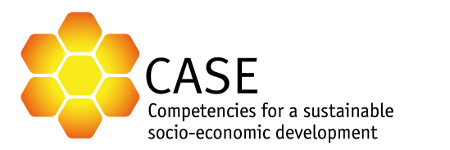In the pilot phase, a strong focus was on testing different cooperation formats between higher education institutions and practice partners as well as innovative methods for transdisciplinary teaching and learning with a particular focus on sustainability-driven entrepreneurship. In total, the case partners piloted 21 courses, all containing a cooperation between students, university and practice partners.
The evaluation gathered data from students, teachers, and cooperation partners by way of focus groups, qualitative interviews or questionnaires. The data analysis investigated success factors of the methods and formats as well as the experiences and benefits gained by students and cooperation partners in terms of learning and other outcomes. During this process, nine different cooperation formats with a high potential to foster competencies for sustainability-driven entrepreneurship were identified and documented by the CASE partners.Overview – Number of courses evaluated and respondents for each group
| No. of courses evaluated | Total respondents | Student responses (focus groups & questionnaire) | Teacher responses (qualitative interviews & questionnaire) | Partner responses (qualitative interviews & questionnaire) |
|---|---|---|---|---|
| 21 | 214 | 139 | 23 | 52 |
The region Vienna
Vienna is the capital and the cultural, economic, and political centre of Austria. The Vienna region also includes the states of Lower Austria and Burgenland. Vienna has a total population of about 1.8 million (October 2014; whole Vienna region 3.6 million) and is growing rapidly.The Pilots
In Vienna a set of innovative courses are developed, tested and evaluated.Sustainability Challenge
One of them is a new edition of the “Sustainability Challenge“ being an inter- and transdisciplinary university course on sustainable development in cooperation with four Viennese universities. The initiative educates leaders of tomorrow through service learning projects and encourages students to develop their own business solution together with business partners.Find out more about the Sustainability Challenge
Change-Management: Shaping a sustainable world by innovation, participation and leadership
In this course students had a look into key elements and concepts of change management in society and business. Guest lecturers from business, NGOs and other Universities created an atmosphere of exchange, discussion and learning. The students’ projects illustrated a variety of change processes – individual ones, focused on personality as well as public, participatory events like the “Courage in the City Walk”.Find out more about the course Change-Management
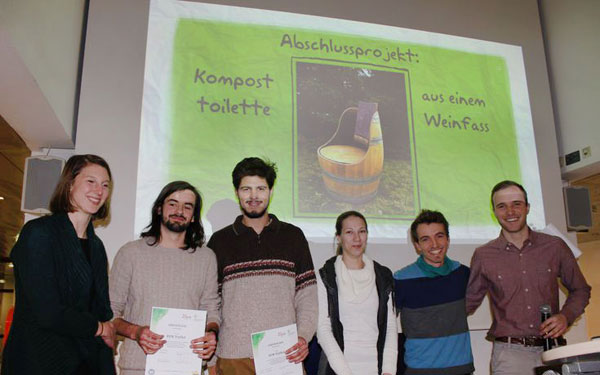
ECN TryOut final event.
TryOut
For six weeks, four student teams had the chance to work within a start-up. This special form of an internship with hands-on approach was designed and realised by the inter-university Entrepreneurship Centre Network (ECN). Experiencing life in a young company was a unique and inspiring moment for the students. A colorful variety of start-ups hosted the TryOut: Neuschnee, Wohnwagon, Topfreisen and DirectSens.Garage
Students learn to implement instruments and methods that help in discovering, evaluating and realising technology-oriented, explorative business ideas. They have the possibility to bring in their own business ideas and are supported in each step by the course instructors and by external mentors, with the goal of transforming an initially rough idea into a convincing businessconcept. At the end of the term the students’ start-up-teams present their business ideas in front of potential investors and other experts. Interdisciplinary teams from three different Austrian universities allow – similar to real start-up situations – various perspectives, skills and competencies to shape the business idea and implementation. Read more about the Garage courseService Learning in Seep Program
In this course students develop and implement a service learning project dealing with a particular sustainability challenge in the greater realm of a socio-ecological transformation. Students not only learn from the experience of the service alone, but by reflection on and creating meaning from the experience. Real-life experience in an transdisciplinary environment and students involvement in the regional community contribute to individual personality development, Communication and group skills, complexity awareness, problem analysis, critical thinking and cognitive development.Find out more about service learning in the Seep program
Watch a video about successful Seep service learning project
The region Oldenburger Münsterland, Vechta
The Oldenburger Münsterland is centrally located in northwestern Germany in the metropolitan region Bremen/Oldenburg and consists of the two counties Vechta and Cloppenburg. It is a rural area with a low population density (ca. 150 persons/km2).The Pilots
In Vechta a set of innovative courses are developed, tested and evaluated.Outside the University Box – Participatory research with people of the region
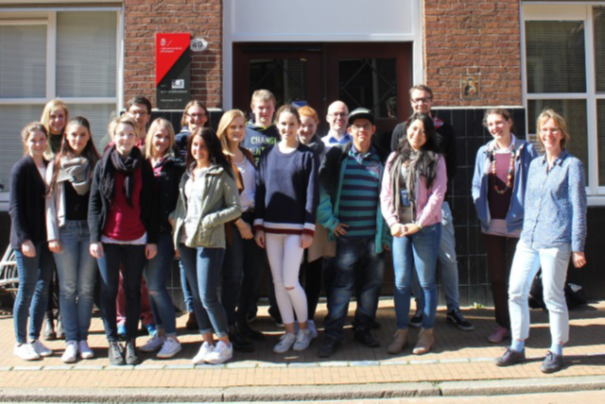
Excursion to Science Shop in Groningen © Gröneweg
Sustainable Development in the Oldenburger Münsterland: solving problems with innovative projects
This course focused on new ideas and strategies about how our society can live and organize itself in the light of social and environmental challenges. Following the idea of entrepreneurship learning, the course strengthened the cooperation with local actors and gave students the chance to develop a project as a local entrepreneurial change maker to enhance sustainability in the region.Profiling internship – Inclusion
Based on inclusive pedagogy, this course enabled students to appreciate disabled people’s concerns and understand the mechanisms and frameworks needed to translate the Convention on the Rights of Persons with Disabilities into practice. After having completed an internship in an institution with disabled persons, students reflected on theoretical aspects of inclusion and its pedagogical implications and worked out how to design inclusive settings for future work places.
Outdoor activities
Sustainable Communities
Sustainable communities is a course that navigates the discourse between strong and weak sustainability and community responses to it. Through a series of block seminars, students worked on a project that investigates community sustainability responses and visited an established German ecovillage, Lebensgarten in Steyerberg, for immersive learning in how ecovillages can be living laboratories of sustainability.The region South Tyrol, Bolzano
South Tyrol is one of the two autonomous provinces that make up the autonomous region of Trentino-Alto Adige/Südtirol. The province has a total population of 511,750 inhabitants (2011). Its capital is the City of Bolzano.The Pilots
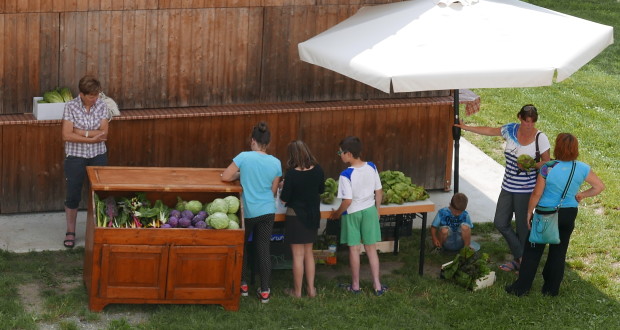
Students learn to produce, distribute and consume food good for us and for the rest of the world
Analysis of cultural and communicative processes
The course deals with the scientific analysis of current cultural and communicative processes. Along with classical and modern sociological theories current social, cultural and communicative change processes of our society (migration, globalization/localization, individualization, pluralization of life forms, digitization, etc.) are discussed and critically reflected. Students visited NGOs and had the chance to experience theoretical approaches with the help of practical examples and with regard to their practical relevance.More detailed german description of the course
Teamwork
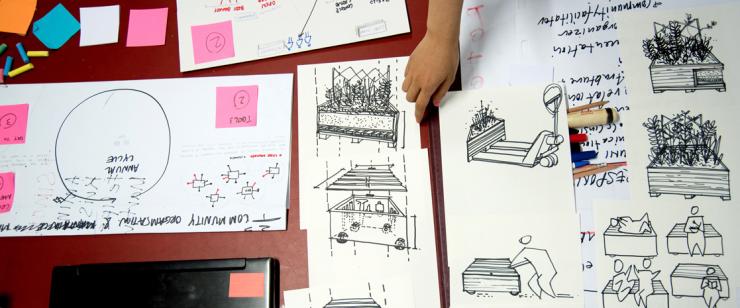
Pilot courses are tested from the Master in Eco-social Design
The region Västra Götaland, Gothenburg
Västra Götaland („West Sweden“) is a region in the western part of Sweden. In December 2013, the region had 1.6 million inhabitants (17% of the population of Sweden). The largest population is found in Gothenburg (550,000 inhabitants).The Pilots
In Gothenburg a set of innovative courses is tested, evaluated and further developed.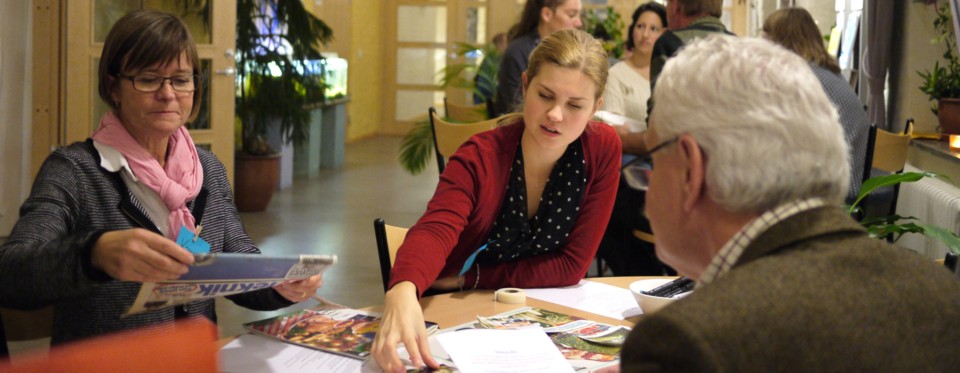
Meeting Sustainable Entrepreneurs at Ekocentrum Gothenburg
Methods for Practical Entrepreneurship
Assessing and evaluating ideas is a core activity for entrepreneurs. In this course, students interact with external idea providers to train their ability to identify, evaluate and explore the potential of new ideas. In addition, students are provided with knowledge, methods and tools for handling these processes.Find out more about the setting of this course
Find out more how to set up similar courses
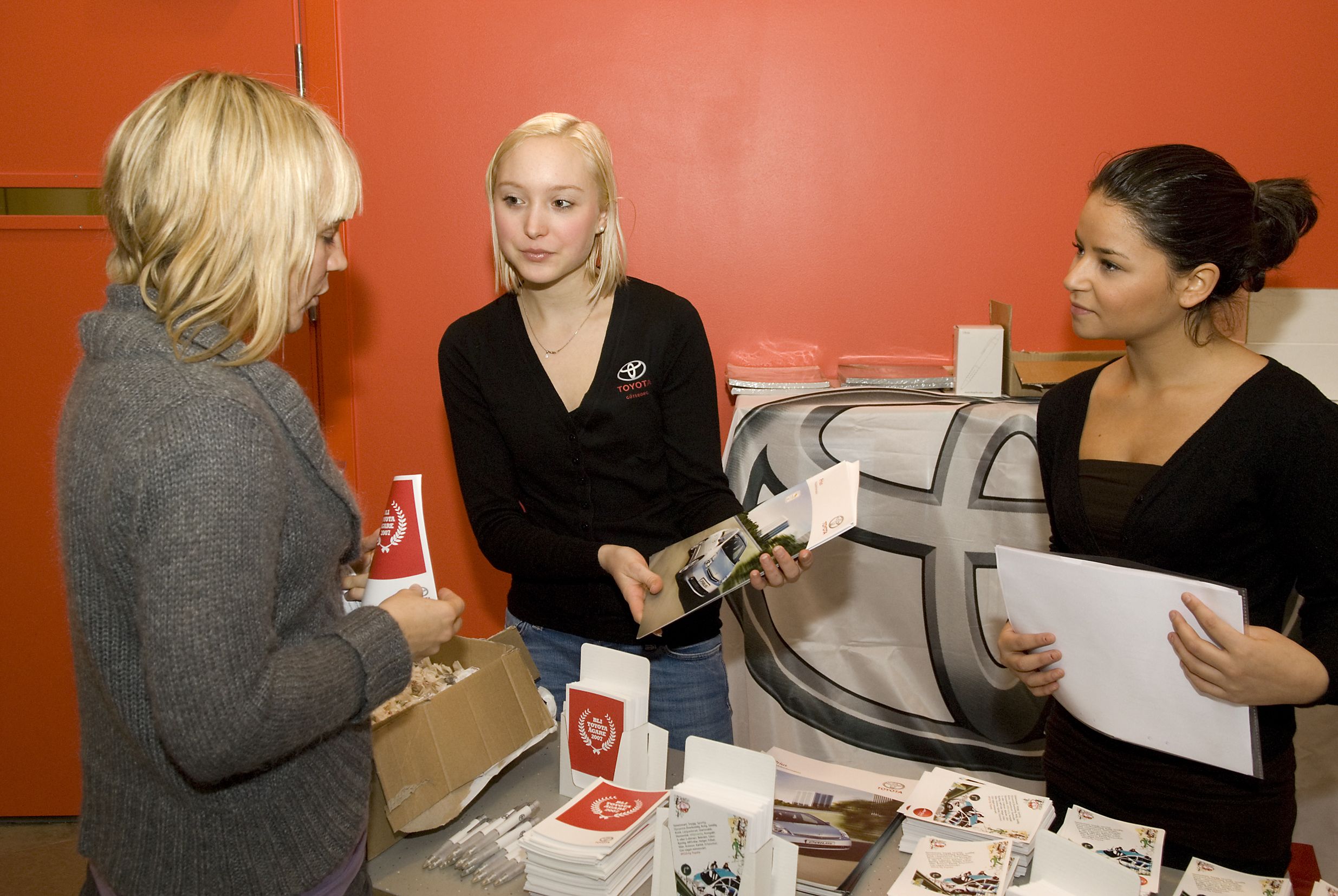
Students discussing their sustainability-driven project
Sustainable Development – A case study approach
In this course, students from different disciplinary backgrounds perform a case study of how society is planning for sustainable development in a concrete local context in the Gothenburg region. Various challenges and opportunities for sustainable development are analyzed and evaluated in interaction with authorities and other societal actors.Find out more about the setting of this course
Find out more how to set up similar courses
Sustainable Management
Sustainable Management is an elective course at the Master’s Programs, enabling students to sharpen their analysis skills in sustainable business. An important part of the course is the Sustainability Screening Case, giving students the opportunity to perform an in-depth study of the sustainability practices and performance of a medium to large-sized local company by analyzing important attributes of existing and plausible sustainable strategies.The region South Moravian Region, Brno
The South Moravian Region is located in the southeastern part of the Czech Republic near the border of Austria and Slovakia. It has a population of 1,169,000 inhabitants. The capital Brno with approximately 370,000 inhabitants is an important economic, administrative, and judicial centre. The advantage of the region is its excellent transport accessibility and strategic location at the crossroads of trans-European road and railway distance routes.The Pilots
In Brno a set of environmental courses are tested, evaluated and developed.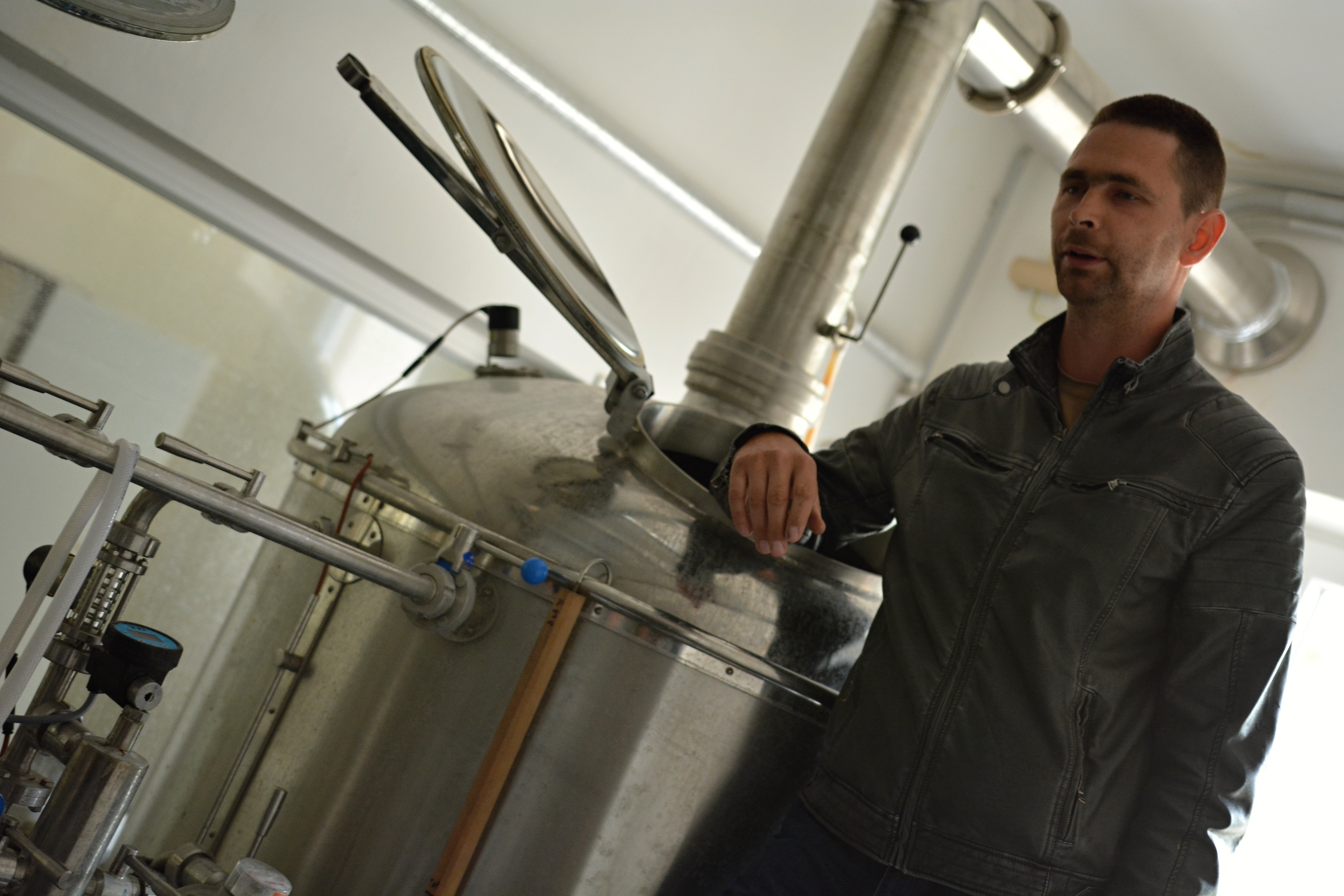
Jiri Novotny, excursion to farm Manner © Ludek Certik
Studying Local Rural Systems
This course provides insights and methodological training in studying local communities through the use of anthropological and social ecological field methods, and interpret the results within the framework of sustainability and development studies.Find out more how to set up similar courses
Management of Rural Space
Human activity is presented and analyzed in the landscape with particular attention paid to agricultural activities. Students develop a model confronting the present industrial agriculture with existing or proposed alternatives, mainly with organic agriculture systems.Find out more about the setting of these courses
Read about the excursion during the Pilot course
Find out more how to set up similar courses
Successful Environmental Project
Environmental projects, particularly related to the sharing economy and a community approach, have gained in popularity in big cities such as Brno, Prague, and Vienna. This course reflects this increased interest, having as a main aim to present successful environmental companies or projects to students by way of field trips.Find out more how to set up similar courses
Ethical and local Economy
The course is designed especially for students who have a deeper interest in practical socio-ecological economic alternatives and already have attended a basic undergraduate or graduate course on economics in the environmental studies program. The course uses interactive methods based on student activities, presentations of guest speakers who have practical experience with grassroots eco-social initiatives and projects, and a case study of a selected community economic project or a description of an own potential project.